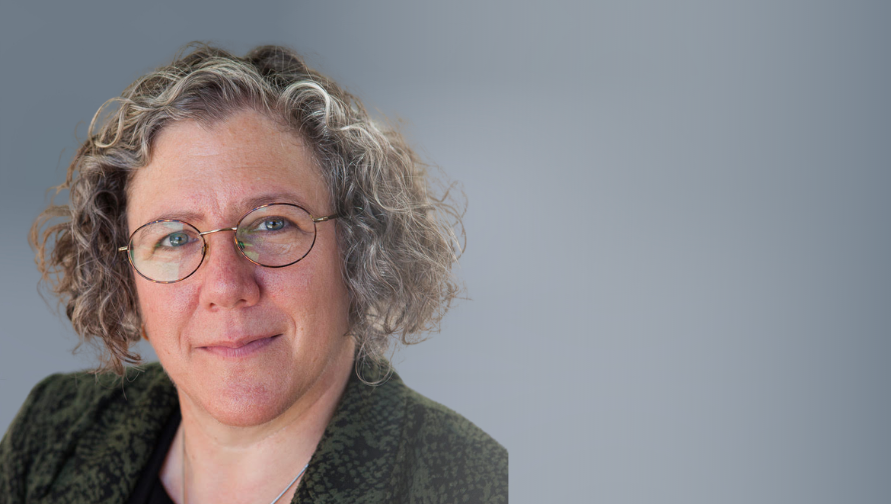
Isabella Furth earned her Ph.D. in English from UCI in 1997. Her research focused on themes of migration and manifest destiny in 19th century American literature. As the founder of Bluefish Editorial Services, which focuses mainly on academic clientele, Furth forged an alternate path from the traditional tenure track while still utilizing the research, writing and editing skills mastered during her Ph.D. years.
What has your professional trajectory been since earning your Ph.D.?
Quixotic! I started out as an adjunct instructor, but quickly soured on the precarity and the low pay. When my second child was born, it made a natural transition point. I was fortunate enough to be able to take some time off, and after a year or so I started working for a small public policy research organization. It started out as an administrative position, but I soon transitioned into writing and editorial work, as well as facilitation and instructional design. A big part of that job was taking complicated policy questions and presenting them in a way that would allow people who hadn’t spent much (if any) time thinking about it to have a useful conversation about it. When I moved on from that position, I knew that I wanted to keep working at that intersection of big ideas and effective communication, and that I loved working with people on their writing. So I started taking on editorial projects, and I founded Bluefish Editorial Services in 2014.
Where are you based now and how would you describe your present job? What is your day-to-day like?
I live in San Diego, but my editorial clients are from all over the country and overseas as well. Most of them are academics working in the humanities and social sciences, so I do a lot of books, journal articles, grant proposals, etc. I employ a few subcontractors for specialties like bibliographies and technical subjects, but most of the projects are handled by me. My day-to-day varies: I do some straight copyediting and proofreading, and you’ll certainly find me wrangling commas and subject-verb agreement. But the bulk of my practice is substantive and developmental work — I will get into the structure and argumentation of a book or article sentence-by-sentence and paragraph-by-paragraph to make sure all the pieces fit together, or I’ll work extensively with an author as they shape a work in progress. It’s a great mix of high-level/big picture stuff and super-granular detail. And my clients are wonderful and are doing fascinating and important work — it’s really a joy to be able to work with them.
What kinds of alignments do you feel there are between your Ph.D. area of study and what you do now?
Obviously working in language and literature has a strong alignment with editorial work. In addition, having first-hand experience working within the academy (combined with a lot of experience outside it) makes me a much better resource for my clients, especially early career and first-generation faculty, for whom the unwritten codes of academia can be especially challenging.
Looking back at your time as a graduate student, what do you wish you would have known about opportunities for careers outside of the traditional tenure track?
At the time, there seemed to me to be a fairly pervasive attitude that the tenure-track job at an R1 university was the only benchmark of success; anything else was less-than. I really wish there had been more candid discussion of the many opportunities that are out there for people with research, analytical and writing skills — and that people who chose an alternate path were viewed with curiosity and appreciation, rather than hushed dismay.
Thinking back on graduate school as preparation for this career, what skill or tool do you think your education best developed that you rely upon now?
It was my time in the classroom working with students on their writing. Being trained in teaching writing and rhetoric gave me an incredibly useful toolkit for working with clients — and not just on the technical side. The emotional side of editorial work is so often overlooked! And it’s intense. For my clients, their writing is not only the key to their professional success, it’s also deeply personal, wired into their identity. My students at UCI taught me so much about how to approach editorial work with empathy and openness.
What skills do you feel were least developed that would have helped you either transition to this field or work more capably in this field?
There was definitely short shrift given to practicalities like how to draft a budget or bid out a proposal. And more broadly there was a tendency to focus so much on the core task of scholarship that everything else — not only administrative tasks but family, health issues, self-care avocations — was dismissed as a distraction from the “real work.” This is not exclusive to the academy, of course, but it’s especially pernicious there. So in my utopia, the university would embrace and model a healthier work-life balance.
What advice would you give to current graduate students in the humanities?
Be clear with your professional boundaries. When a career is presented as a calling, it can be very tempting to sacrifice your wellbeing on that altar. But there are thousands of ways to map out a fulfilling professional life. Nothing you have done so far will be wasted! No matter what your career path ends up becoming, the things that brought you to this place — your curiosity, imagination, inventiveness — are what will serve you in the future.
